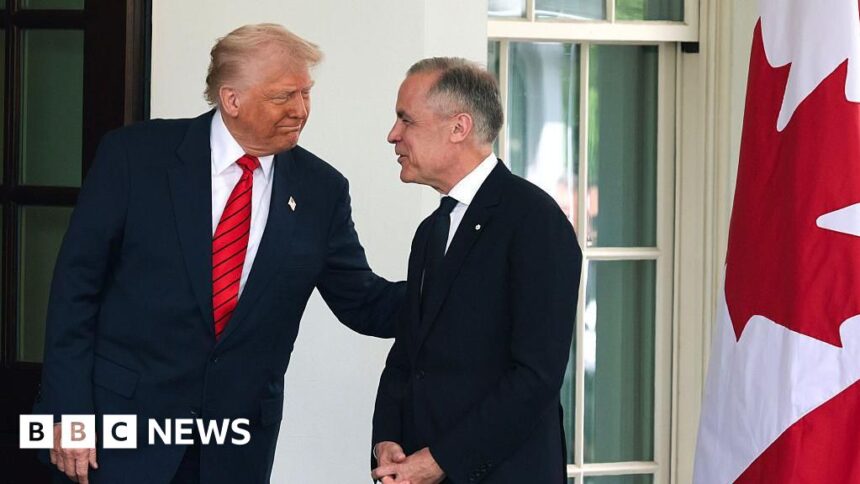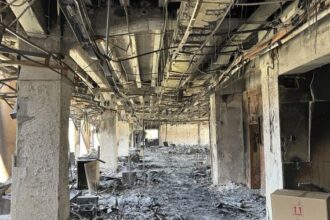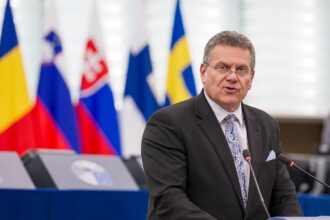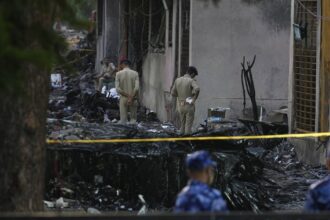The pristine Italian coastline of Puglia stands in stark contrast to the volatile discussions unfolding behind closed doors at this year’s G7 Summit, where escalating Middle East tensions have forcefully pushed themselves to the top of the agenda. What began as a meeting focused primarily on Ukraine and economic cooperation has rapidly evolved into an urgent diplomatic effort to prevent a wider regional conflict between Israel and Iran.
World leaders gathered at the summit find themselves walking a precarious diplomatic tightrope as they attempt to dissuade Israel from launching a major retaliatory strike against Iran’s nuclear facilities. Following Iran’s unprecedented missile attack on Israeli territory in April, intelligence sources indicate Israel has been meticulously planning a significant response, despite repeated warnings from allies about the potentially catastrophic consequences.
“We are unified in our approach to de-escalation,” said Canadian Prime Minister Justin Trudeau during yesterday’s sessions, echoing statements from other G7 leaders. “While we recognize Israel’s right to defend itself, we must collectively work toward preventing actions that could trigger a wider regional conflict with unpredictable outcomes.”
The summit has revealed notable tensions in the Western alliance’s approach. While the United States, Canada, and European nations have publicly urged restraint, behind-the-scenes diplomatic cables suggest varying degrees of support for Israel’s position. These nuanced differences highlight the complex geopolitical calculations at play as nations balance security partnerships with peace initiatives.
Financial markets have already begun reacting to the uncertainty, with oil prices climbing 3.7% since the summit began. Analysts at Toronto-based RBC Capital Markets warn that a direct strike on Iranian oil infrastructure could send prices soaring past $120 per barrel, potentially triggering economic shockwaves across global economies still recovering from recent inflationary pressures.
The G7 discussions have also addressed Iran’s continuing nuclear program, with intelligence assessments suggesting Tehran may have accelerated enrichment activities in recent months. This development adds urgency to diplomatic efforts, as Israel has long maintained that it cannot accept a nuclear-armed Iran, which it considers an existential threat.
Palestinian civilian casualties in Gaza have created additional pressure points in the talks. Aid organizations report critical shortages of medical supplies and food, with humanitarian access severely restricted. G7 leaders have committed to increasing aid contributions but remain divided on the most effective mechanisms for delivery given the complex security situation.
Regional allies, including Jordan and Egypt, have sent diplomatic representatives to the summit’s periphery meetings, advocating for a comprehensive approach that addresses immediate humanitarian needs while working toward longer-term stability. Their participation underscores the ripple effects of the conflict across the broader Middle East.
As the summit moves toward its conclusion tomorrow, attention focuses on the joint communiqué being drafted by diplomatic teams working through the night. The document is expected to outline concrete steps for de-escalation while acknowledging the legitimate security concerns of all parties involved. However, veteran diplomats caution that words alone will not be sufficient to prevent further military actions.
The G7’s effectiveness will ultimately be measured not by the eloquence of its final statement but by what happens in the days following the summit. As world leaders return to their capitals, their ability to influence decision-makers in Jerusalem and Tehran will determine whether diplomatic channels prevail over military options.
As tensions continue to mount in one of the world’s most volatile regions, the fundamental question remains: Can the collective diplomatic weight of the world’s most powerful democracies successfully navigate the narrow path between supporting allies and preventing a potentially catastrophic regional war that no one claims to want?


















